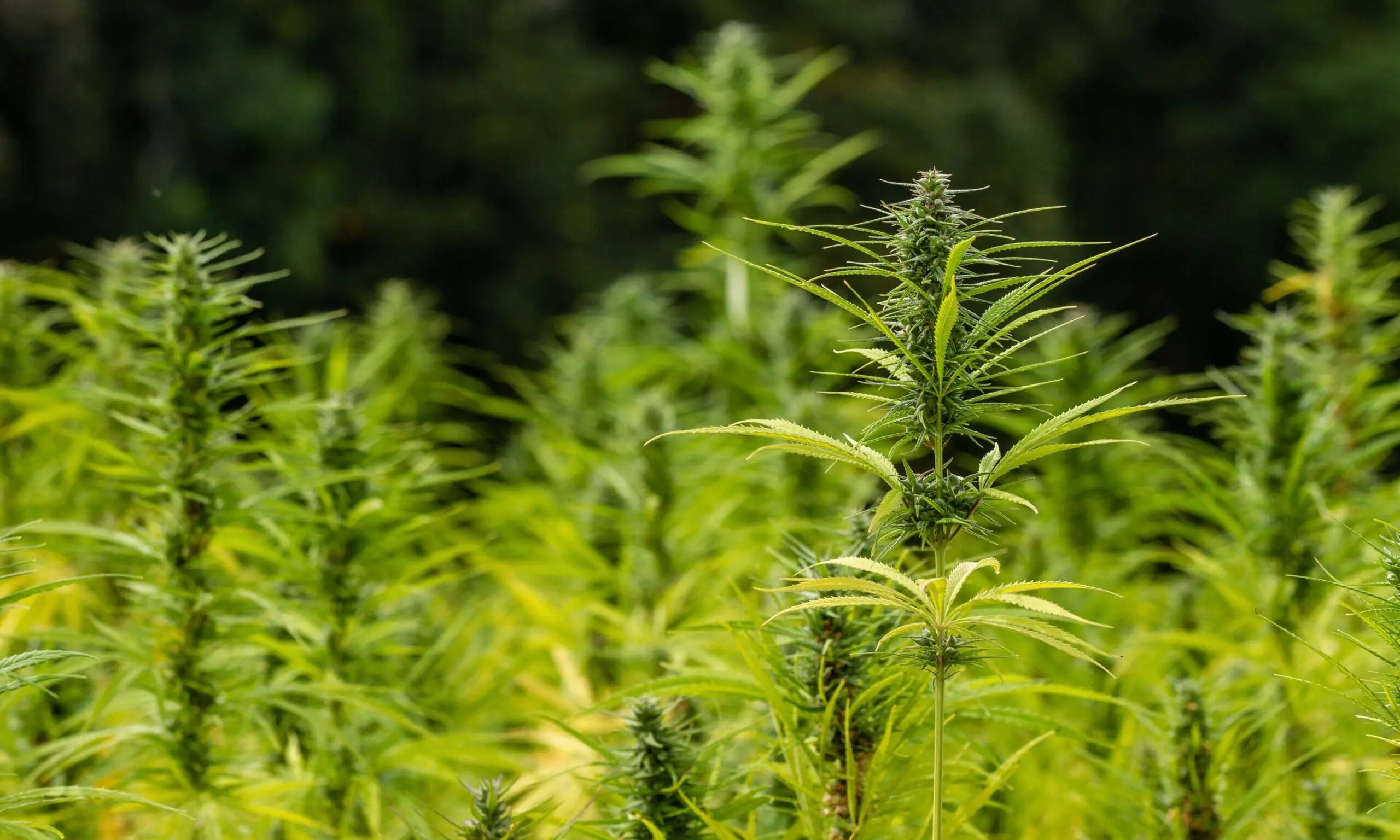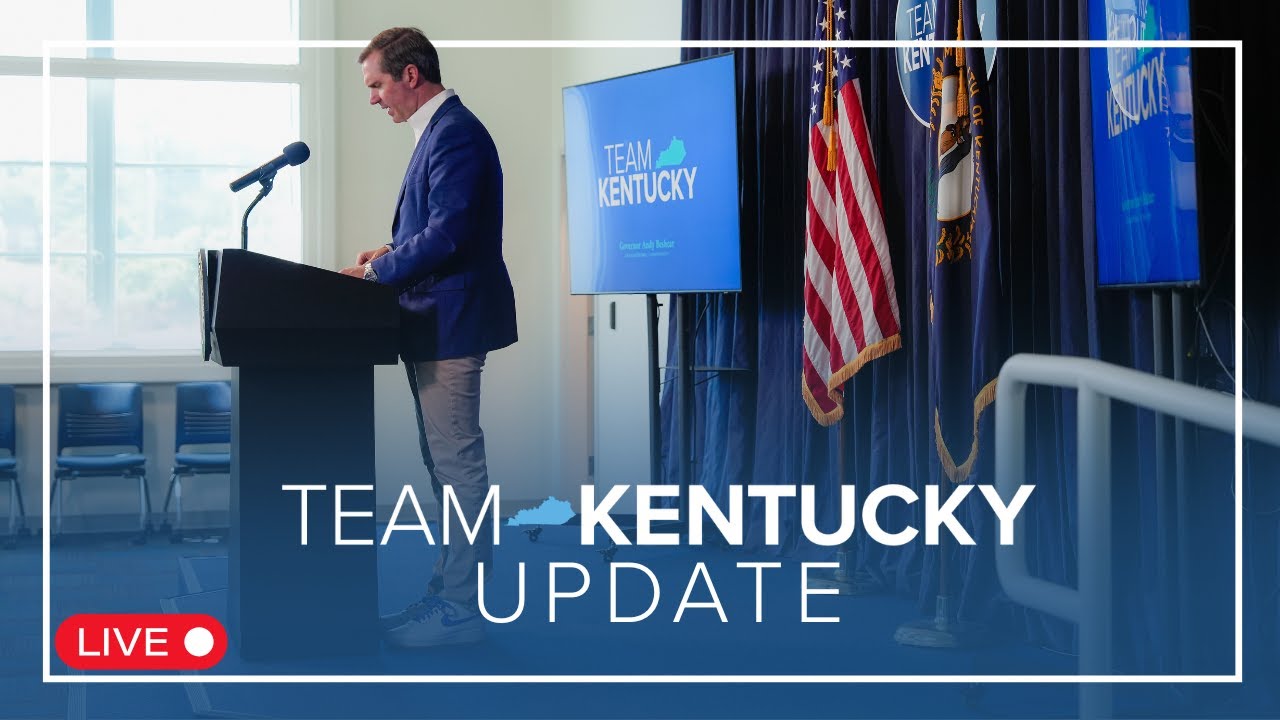Politics
Kentucky Governor Says Hemp Is An ‘Important Industry’ That Should Be Regulated At The State Level, Not Federally Banned

The Democratic governor of Kentucky says the hemp industry is an “important” part of the economy that deserves to be regulated at the state level—rather than federally prohibited, as Congress has moved to do under a spending bill President Donald Trump signed on Wednesday.
During a press briefing on Thursday, Gov. Andy Beshear (D) was asked whether he agrees with Sen. Rand Paul (R-KY) that the hemp language that advanced through the appropriations legislation poses an existential threat to the cannabis market that’s emerged since the crop was federally legalized under the 2018 Farm Bill.
“I haven’t had a chance to review the language on hemp, but hemp is an important industry in Kentucky,” Beshear said. “We should have appropriate safety regulations around it, but we should make those regulations here in Kentucky—talking to the industry and making sure that we get that balance right.”
“I think that we can protect our kids. I think that we can do the right thing to protect all of our people while not handicapping an industry that supports a lot of people,” the governor said.
That’s essentially the argument that hemp stakeholders have made in the lead-up to this week’s congressional vote, making the case that there are public safety concerns with the currently unregulated market, but those should be addressed with rules such as age limits and testing requirements, rather than prohibition.
The debate over hemp policy on Capitol Hill pitted Kentucky’s two U.S. senators against each other. Paul strongly pushed to eliminate the hemp ban provisions, creating tension with Sen. Mitch McConnell (R-KY), who led the push to re-criminalize consumable hemp products containing THC.
The Kentucky Democratic Party blasted McConnell and Republicans generally over the hemp language that they say was “slipped” into the bill and “would destroy Kentucky’s $300 million hemp industry.”
“First bourbon exports tanked. Then Trump’s tariffs crushed soybean sales. Now Republicans are destroying the hemp industry that employs 3,500 Kentuckians,” the state party said in a fundraising email blast on Thursday. “Farmers who’ve already harvested their crops could see them go to waste.”
“McConnell created this industry in 2018,” it said, referring to the senator’s central role in legalizing hemp through the farm bill. “Now he’s destroying it on his way out the door, while Kentucky farmers are already suffering from Trump’s tariffs. Kentucky agriculture deserves better than Republicans who destroy what our farmers are building,”
Meanwhile, a leading veterans organization is warning congressional leaders that the newly approved blanket ban on consumable hemp products could inadvertently “slam the door shut” on critical research.
While many hemp stakeholders say the ban would effectively eradicate the industry–even applying to nonintoxicating CBD products that people use for medical reasons—there’s latent hope that they can strike a compromise deal with lawmakers before the prohibition is implemented this time next year.
Lawmakers such as Sen. Chris Van Hollen (D-MD) also say that window could provide an opportunity to advance legislation to create an alternative regulatory model for consumable hemp products.
There were attempts by GOP lawmakers in both chambers to strike the hemp prohibition provision. But the proposed amendments from Paul and Thomas Massie (R-KY) did not make it into the final package.
On the Senate side, Paul was joined by 22 Democrats—and, notably, anti-marijuana Sen. Ted Cruz (R-TX)—in voting against a motion to table the amendment to prevent the ban, but the majority ultimately quashed it.
Massie tried to revive the push in the House with his own amendment mirroring Paul’s, but the prospects of its adoption were dubious at best, as there was generally consensus within the Republican caucus that the spending bill should advance without further modifications that could have sent it back to the Senate.
—
Marijuana Moment is tracking hundreds of cannabis, psychedelics and drug policy bills in state legislatures and Congress this year. Patreon supporters pledging at least $25/month get access to our interactive maps, charts and hearing calendar so they don’t miss any developments.
![]()
Learn more about our marijuana bill tracker and become a supporter on Patreon to get access.
—
Since 2018, cannabis products have been considered legal hemp if they contain less than 0.3 percent delta-9 THC on a dry weight basis.
The new legislation specifies that, within one year of enactment, the weight will apply to total THC—including delta-8 and other isomers. It will also include “any other cannabinoids that have similar effects (or are marketed to have similar effects) on humans or animals as a tetrahydrocannabinol (as determined by the Secretary of Health and Human Services).”
The new definition of legal hemp will additionally ban “any intermediate hemp-derived cannabinoid products which are marketed or sold as a final product or directly to an end consumer for personal or household use” as well as products containing cannabinoids that are synthesized or manufactured outside of the cannabis plant or not capable of being naturally produced by it.
Legal hemp products will be limited to a total of 0.4 milligrams per container of total THC or any other cannabinoids with similar effects.
Within 90 days of the bill’s enactment, the Food and Drug Administration (FDA) and other agencies will need to publish list of “all cannabinoids known to FDA to be capable of being naturally produced by a Cannabis sativa L. plant, as reflected in peer reviewed literature,” “all tetrahydrocannabinol class cannabinoids known to the agency to be naturally occurring in the plant” and “all other known cannabinoids with similar effects to, or marketed to have similar effects to, tetrahyrocannabinol class cannabinoids.”
The language slightly differs from provisions included in legislation that had previously advanced out of the House and Senate Appropriations panels, which would have banned products containing any “quantifiable” amount of THC, to be determined by the HHS secretary and secretary of agriculture.
Meanwhile, advocates are sharply criticizing congressional leaders for advancing the spending bill ahead of Veterans Day on Tuesday that also omits bipartisan provisions allowing U.S. Department of Veterans Affairs (VA) doctors to recommend medical cannabis to patients in states where it’s legal—even though the policy was approved by the full Senate and House earlier this year.




